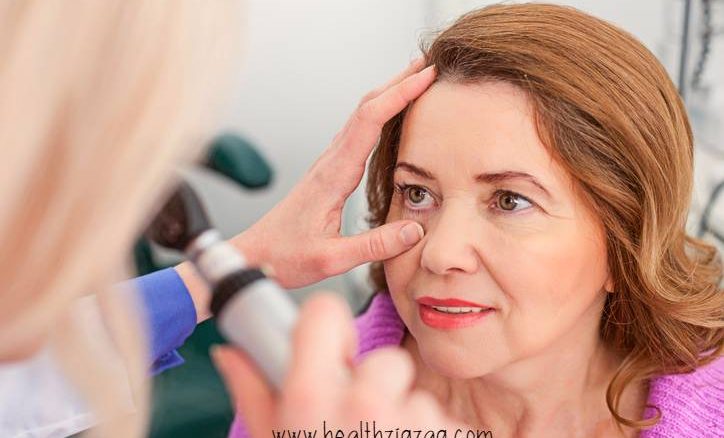
Glaucoma – isn’t that some just some disease that “old” people get?
Unfortunately, it’s not as simple as that – even children and teenagers can be diagnosed with this condition!
However, it is indeed much more prevalent in older adults, especially those with other risk factors such as:
- a family history of glaucoma
- diabetes
- short-sightedness (myopia)
- eye injuries
- migraine
- high blood pressure
- and, some medications
It’s not surprising then that glaucoma is much more common in older adults. There aren’t too many people aged over 60 that don’t require regular medication of some sort.
While it may seem irrelevant when you visit an optometrist for an eye check-up. There is a very good reason why they will ask about any medications you may have taken – past or present. It helps them to determine whether you have an increased risk of certain eye problems, such as glaucoma.

What is Glaucoma?
Glaucoma is a condition that gradually destroys the optic nerve which then leads to vision loss. This usually happens due to elevated pressure in your eye. Elevated pressure may occur as a result of a blockage in the drainage passages in your eye. Or perhaps you were born with very narrow angles in these passages.
Read Also: 5 Things You Need To Know About Color Blindness
However, it may also develop as a result of taking some medications, such as:
Steroids
You may be prescribed corticosteroids (also known as steroids) for conditions such as arthritis, asthma, or skin conditions. The method of use may include oral consumption (tablets), topically (as a cream for example if you have eczema), or via an inhaler.
The good news is that it’s pretty rare for glaucoma to develop from corticosteroid treatment. Even then it’s usually only after prolonged use (ie decades rather than years).
Adrenergic Agents
These medications cause a reaction similar to the ‘fight or flight’ response in your body. And maybe used to treat mild conditions such as colds and allergies, through to the more serious – bronchitis, emphysema, and asthma, or cardiac events.
Anticholinergic
Because anticholinergic medications block involuntary muscle movements. They are useful in the treatment of bladder complaints, diarrhea and the tremors associated with Parkinson’s disease. Some anti-depressants, anti-psychotics, and anti-histamines are also considered to be very mild anticholinergics.
Sulpha Drugs
There have been “many case reports of closed-angle glaucoma” leading to significant vision loss in people of all ages. From a type of sulpha drug that is most commonly used to help with migraines or weight loss.
Medications used to treat Cancer
If you are diagnosed with a serious illness like cancer. Chances are that your future eye health is probably the last thing on your mind!
However, some anti-cancer medications can lead to elevated pressure in your eyes and possible vision loss. So, for this reason, your doctor or specialist will send you for an eye check as part of your overall cancer treatment plan.
Anesthesia
Some of the ingredients used in general anesthesia may elevate pressure levels in the eye. But the effect is usually temporary. However, for this reason, your surgeon will generally recommend you go for an eye check after any procedure. Which requires the use of a general anesthetic.
Botox
Maybe those crow’s feet and other wrinkles near your eyes aren’t so bad after all when you consider this. When injected close to the eye, Botox can cause dilation of the pupil. Leading to blockage of the drainage tubes, and possibly glaucoma in some individuals.
While it seems that there are quite a lot of medications that may cause glaucoma. The fact of the matter is that most medications have side effects.
This is why your health professionals need to take a holistic view of your health. Weighing up which ones are most suitable for you based on your medical history and presenting condition.
Caution:
Fortunately, serious side effects (such as glaucoma) from medication are usually rare. So while it might seem like the list of medications that could increase your risk of developing glaucoma, and threaten your precious eyesight, it is quite lengthy. There is certainly no need to panic or avoid them altogether. Rather, it is just something that you and your health practitioners should be aware of and take into consideration when planning any treatment.
Medication:
Ask an optometrist and they will tell you to have important it is to undergo a routine eye examination every year or two, even if you aren’t experiencing any vision problems. Regular eye checks are the only way elevated eye pressure (and several other serious conditions) can be diagnosed and treated as soon as possible. This is particularly important in the case of glaucoma because while there is currently no cure, at least any further vision loss can usually be prevented.




